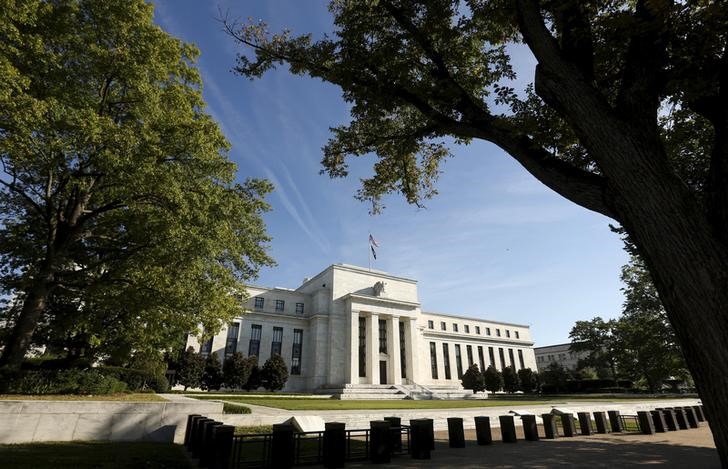By Ann Saphir
Dallas (Reuters) - Four U.S. interest-rate hikes are "not baked in the cake" for the Federal Reserve this year, particularly given global stock market volatility set off by fears over a cooling Chinese economy, a top Fed official said on Monday.
The Fed raised rates in December, the first rate hike in almost a decade and ending a seven-year stretch in which rates were held at a near-zero level in response to the 2007-2009 financial crisis and recession.
Investors are now focused on when the next rate hike will be, with economists predicting March.
Fed officials overall expect four rate hikes this year, according to the median of their forecasts from December.
"This is an unusual start to the year, obviously," Robert Kaplan, the Dallas Fed's new president, told reporters after a talk here.
Concern about slowing growth in China roiled world markets in August and forced the Fed to hold off raising interest rates in September. This year has started off with global markets again rocked by plunges in Chinese stock markets, a fall in the yuan and subsequent heavy intervention by the Chinese authorities to push the yuan back up.
"We went through this in August and September, we paused, we watched, we let events unfold, which is the right way to handle it, and we saw ultimately that underlying economic conditions remained intact and solvent," Kaplan said.
"There's no substitute for time in assessing economic data as it unfolds," Kaplan told reporters.
Kaplan said he is not sure there will be enough economic data before the Fed's next policy meeting in late January to justify raising rates then, but "between now and March I think there will be."
Kaplan's comments differ somewhat from those earlier in the day from Atlanta Fed President Dennis Lockhart, who said there may not be enough data even by March to make a call for raising rates.
Still, Kaplan, who was a longtime banker for Goldman Sachs (N:GS), said he was withholding judgment about the implications of China's market swings for the U.S. economy.
"We have to pay attention to underlying economic conditions and we certainly have to watch what's going on with financial conditions," he said, adding that markets can swing one way one week and another the next.

"You got to give it some time to see how things unfold," he said.